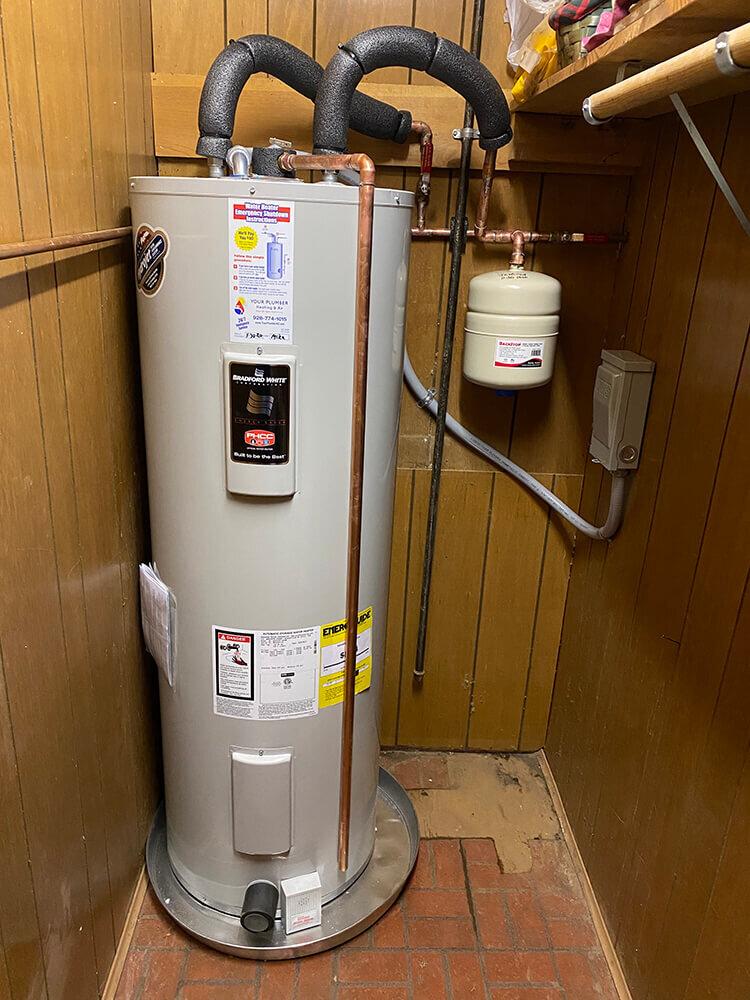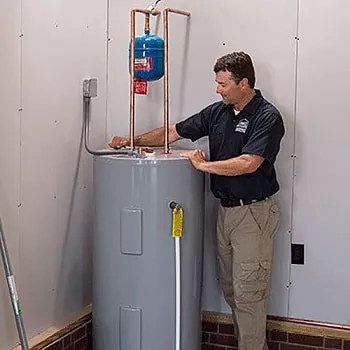Trustworthy Pipe Repair Solutions to Prevent Expensive Water Damage
Trustworthy Pipe Repair Solutions to Prevent Expensive Water Damage
Blog Article
Complete Overview to Water Heating UnitInstallation and Substitute
Comprehending the complexities of water heater installment and substitute is critical for home owners seeking to make certain efficiency and integrity in their hot water supply. From picking the appropriate kind and size to executing a seamless installment procedure, several factors need to be taken into consideration to stay clear of common mistakes.
Sorts Of Hot Water Heater
When considering water heating unit setup and replacement, it is important to recognize the different kinds of water heating systems available in the marketplace. One of the most typical types include tank hot water heater, tankless hot water heater, warm pump water heating systems, and solar hot water heater.
Container hot water heater are conventional systems that store a certain quantity of warm water, making them readily available when needed. They are generally more economical in advance yet may sustain higher energy expenses in time due to warm loss. On the other hand, tankless water heating units provide warm water on need, getting rid of the need for storage space. They are energy efficient and can conserve space, but their initial costs are typically greater.
Heatpump hot water heater use electrical energy to transfer warm from the air or ground to heat water, providing considerable energy financial savings however needing even more room and details installment problems. Finally, solar water heating units harness solar power to warm water, providing an eco-friendly option with prospective long-lasting price financial savings, although they commonly call for a back-up system for gloomy days.
Comprehending these alternatives makes sure informed decisions relating to installation and replacement, dealing with details needs and preferences.
Picking the Right Dimension
Choosing the appropriate dimension for a hot water heater is essential to make certain optimum performance and effectiveness. A system that is too little will certainly have a hard time to satisfy household demands, bring about inconsistent warm water availability and enhanced power consumption. On the other hand, an oversized hot water heater can lead to unnecessary energy waste and higher energy expenses.
To identify the ideal size, consider the home's top warm water use. This can be determined based upon the number of residents and their normal warm water requirements. A household of 4 might call for a water heating system with a capacity of 50 to 80 gallons, depending on the use patterns, such as synchronised showers and washing.
Additionally, evaluate the recuperation price, which gauges exactly how swiftly a heating system can renew hot water after it has actually been made use of. For tankless designs, focus on the flow price, determined in gallons per min (GPM), to ensure it satisfies the house's synchronised demand.

Installation Process Review

Following, the old device needs to be detached and gotten rid of, making sure to adhere to neighborhood codes and policies pertaining to disposal. When the old unit is out, the new water heating unit can be placed Discover More Here in area. This step involves connecting the water system lines, making certain that all installations are safe and secure and leak-free.
After developing water links, it's vital to connect the power supply, whether electric or gas, adhering to the producer's instructions meticulously. As soon as all connections are made, the system must be loaded with water, and the power can be transformed back on. It's vital to inspect for leaks and make certain the water heating system is operating correctly prior to finishing the setup procedure.
Usual Installment Blunders
:max_bytes(150000):strip_icc()/replacing-a-water-heater-1824920-hero-20747e5013dd49ef8e7bd63c2bf5c386.jpg)
Another constant error is overlooking to comply with neighborhood codes and policies. Stopping working to adhere to these criteria can not just lead to safety and security risks however may likewise result in expensive penalties or the requirement for pricey reinstallation.
Wrong plumbing links are also a prevalent mistake. Failing to safeguard connections or making use of the wrong sort of fittings can bring about leaks and water damages. Ignoring the importance of a proper drainpipe frying pan can result in considerable water damages if leaks do occur. Poor insulation of pipes can lead to heat loss, reducing performance. By staying clear of these typical installment blunders, home owners can guarantee their water heating unit runs securely and successfully, taking full advantage of performance and longevity.
Upkeep Tips for Durability
Proper upkeep of a hot water heater is crucial for its long life and optimum performance. Normal evaluations and maintenance can prevent costly fixings and expand the home appliance's lifespan. Begin by examining the temperature setting; it ought to commonly be set between 120 ° F and 140 ° F for ideal energy performance and safety and security.
Every six months, More Help flush the tank to remove debris buildup, which can harm heating effectiveness and create corrosion. To do this, shut off the heater, link a tube to the drain valve, and allow the water run up until it is clear.
Anode poles must be evaluated annually and replaced when they are worn away. These rods help protect against tank corrosion by drawing in harsh elements in the water.
In addition, inspect the stress safety valve routinely to ensure it is operating correctly. This shutoff is vital for protecting against excessive stress build-up within the container.
Finally, take into consideration arranging an expert maintenance check every couple of years for complete evaluations and servicing. By adhering to these upkeep pointers, homeowners can substantially improve the effectiveness, safety, and life expectancy of their water heating units, guaranteeing reliable warm water for many years to come.
Final Thought
In conclusion, proper installation and maintenance of water heating systems are crucial for ensuring efficiency and long life (gas leak repair). Picking the proper kind and size, sticking to installment guidelines, and staying clear of common mistakes dramatically add to optimum performance. my company Regular upkeep checks and professional maintenance aid receive performance and stop expensive repairs. By understanding these important facets, house owners can accomplish a trustworthy warm water supply while minimizing potential issues related to water heater operation.
Recognizing the complexities of water heater installment and substitute is critical for homeowners seeking to guarantee effectiveness and reliability in their hot water supply.Storage tank water heaters are traditional systems that store a certain quantity of warm water, making them readily offered when needed. In contrast, tankless water heating units give warm water on need, eliminating the demand for storage space. Choosing a water heating system that is either also small or as well big can lead to inadequacies, resulting in inadequate hot water supply or too much energy consumption.
By understanding these essential elements, home owners can attain a trustworthy warm water supply while minimizing prospective problems related to water heating system operation. gas leak repair.
Report this page